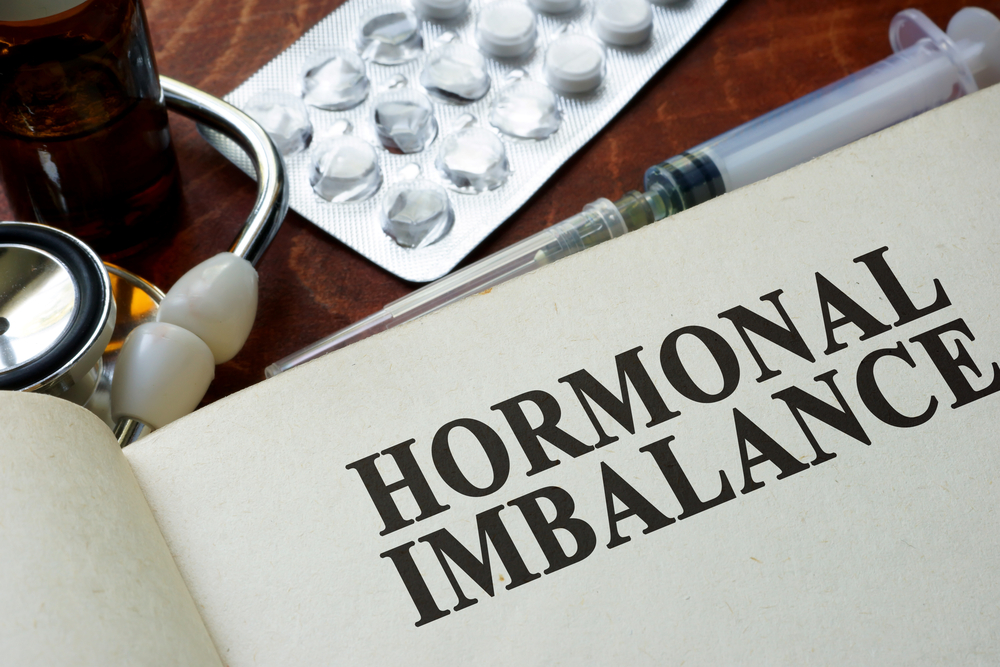You snap at your partner over something trivial, find yourself crying during a commercial, or feel an overwhelming sense of anxiety seemingly out of nowhere. While it’s easy to blame yourself for these emotional reactions or chalk them up to stress, the real culprit might be chemical messengers flowing through your bloodstream right now. Hormonal imbalances often hide behind psychological labels, leaving many people treating the symptoms while missing the underlying cause.
The invisible orchestra conducting your emotions
Your body contains a sophisticated network of hormones that influence virtually every aspect of your functioning, including your emotional state. These chemical messengers travel through your bloodstream, delivering instructions to various organs and systems. When this delicate balance gets disrupted, your mood often takes the first hit.
Think of your hormonal system as an orchestra where each hormone plays a specific instrument. When everyone plays in harmony, the music flows beautifully. But when even one instrument falls out of tune or plays too loudly, the entire composition suffers. Similarly, when certain hormones become too abundant or too scarce, emotional discord follows almost immediately.
What makes hormonal influences particularly tricky to identify is how closely they mimic psychological issues. The irritability from declining progesterone feels remarkably similar to irritability from work stress. The anxiety caused by thyroid dysfunction presents almost identically to anxiety from a challenging life situation. Without proper testing, distinguishing between hormonal and purely psychological causes becomes nearly impossible.
Thyroid troubles masquerading as mental health issues
Your thyroid gland produces hormones that regulate metabolism throughout your body, including your brain. When this butterfly-shaped gland at the base of your neck produces too much or too little hormone, emotional symptoms often appear before physical ones.
Hypothyroidism, where your thyroid produces insufficient hormone, frequently presents as depression. The fatigue, mental fogginess, and low mood caused by a sluggish thyroid mirror clinical depression so closely that many patients receive antidepressants before anyone checks their thyroid function. The weight gain that accompanies hypothyroidism often compounds these feelings, creating a cycle that seems entirely psychological in nature.
On the flip side, hyperthyroidism, where your thyroid overproduces hormones, commonly manifests as anxiety, restlessness, and irritability. People with undiagnosed hyperthyroidism often find themselves diagnosed with anxiety disorders or even bipolar disorder, especially when symptoms fluctuate as thyroid levels shift. The racing heart, sleep difficulties, and constant sense of unease caused by excess thyroid hormone feels indistinguishable from psychological anxiety.
The thyroid-mood connection explains why standard psychiatric treatments sometimes fail completely. Antidepressants can’t correct a thyroid hormone deficiency, just as anti-anxiety medications won’t resolve the root cause of hyperthyroidism-induced nervousness. Only by addressing the hormonal imbalance can true relief occur.
The blood sugar rollercoaster affecting your emotional stability
Insulin, the hormone responsible for regulating blood glucose levels, influences your mood more directly than most people realize. When your blood sugar rises and falls dramatically throughout the day, your emotional state often follows the same volatile pattern.
Reactive hypoglycemia, where blood sugar drops too low after meals, frequently triggers irritability, anxiety, confusion, and even panic attacks that feel entirely psychological. The brain, which depends heavily on glucose for fuel, reacts to falling blood sugar by releasing stress hormones like adrenaline and cortisol. These hormones create the physical sensations of anxiety while simultaneously making you more emotionally reactive.
Similarly, chronically elevated blood sugar affects neurotransmitter function and creates low-grade inflammation in the brain, potentially contributing to depression symptoms. The connection works both ways, as depression and anxiety also affect blood sugar control, creating a self-perpetuating cycle that’s difficult to break without addressing both the hormonal and psychological aspects.
What makes this connection particularly insidious is how blood sugar fluctuations often fly under the radar in conventional testing. Standard glucose tests might miss reactive patterns that occur specifically after meals or during stress, allowing the emotional symptoms to be incorrectly attributed to purely psychological causes.
Sex hormone shifts beyond just PMS
While most people recognize the connection between premenstrual mood changes and hormones, the influence of sex hormones extends far beyond the week before menstruation. Estrogen, progesterone, and testosterone fluctuations affect neurotransmitter activity directly, altering everything from serotonin production to dopamine sensitivity.
Estrogen acts somewhat like a natural antidepressant, enhancing serotonin availability and effectiveness. When estrogen levels drop, whether during certain phases of the menstrual cycle, after childbirth, or approaching menopause, depression risk increases markedly. The mood enhancement many women experience during pregnancy correlates with rising estrogen levels, just as postpartum depression often coincides with the dramatic hormonal drop after delivery.
Progesterone produces more complex mood effects, with moderate levels generally creating calming sensations while sharp declines can trigger irritability and anxiety. The progesterone metabolite allopregnanolone affects GABA receptors in the brain similarly to anti-anxiety medications, explaining why progesterone fluctuations so powerfully influence emotional stability.
Testosterone, present in significant amounts in all genders though higher in males, influences motivation, confidence, and emotional resilience. Low testosterone frequently manifests as depression, particularly the type characterized by apathy, reduced pleasure, and diminished drive. Unfortunately, these symptoms often get attributed to depression alone, with the hormonal component overlooked entirely.
Stress hormones creating a psychological perfect storm
Cortisol, your primary stress hormone, dramatically influences mood and emotional processing when its natural rhythm becomes disrupted. While cortisol normally follows a daily pattern, chronic stress can create either chronically elevated levels or an eventual cortisol crash, both with profound psychological effects.
High cortisol typically generates anxiety, hypervigilance, and irritability that feels psychological but stems from your body being stuck in fight-or-flight mode. Your amygdala, the brain’s threat-detection center, becomes hypersensitive during periods of elevated cortisol, causing you to perceive threats and respond emotionally to situations that wouldn’t normally affect you.
Conversely, when your adrenal glands eventually struggle to produce sufficient cortisol after prolonged stress, the resulting low levels often create depression, fatigue, and apathy that resist standard treatments. This condition, sometimes called adrenal fatigue or HPA axis dysfunction, creates mood symptoms easily mistaken for primary depression rather than the hormonal imbalance they actually represent.
The cortisol-mood connection explains why stress management techniques sometimes outperform psychiatric medications for certain people. By addressing the hormonal imbalance through lifestyle modifications that normalize cortisol patterns, both physical and emotional symptoms often improve simultaneously.
The gut hormone signals affecting your emotional state
Recent research has revealed that hormones produced in your digestive system significantly influence brain function and mood. Ghrelin, leptin, and other gut peptides do far more than regulate hunger, directly affecting reward centers and emotional processing in your brain.
Ghrelin, often called the hunger hormone, appears to have antidepressant and anti-anxiety effects when balanced properly. Disruptions to healthy ghrelin signaling, common in both restrictive eating and overeating patterns, may contribute to emotional instability that seems purely psychological but actually stems from hormonal miscommunication.
Leptin, which signals satiety, also modulates stress responses and emotional regulation when functioning optimally. Leptin resistance, common in people with excess body fat, potentially contributes to depression through inflammatory pathways and altered brain signaling. This hormonal component explains why some depression cases improve with metabolic interventions rather than standard psychiatric approaches.
These gut-brain hormone connections help explain why digestive issues so frequently accompany mood disorders, and why dietary changes sometimes improve psychological symptoms dramatically. Rather than being separate issues, the digestive and emotional symptoms often represent different manifestations of the same underlying hormonal imbalances.
Recognizing the signs that your mood swings might be hormonal
Certain patterns suggest hormonal rather than purely psychological causes for emotional symptoms. Cyclical mood changes that follow predictable patterns, particularly when they correlate with other physical symptoms, often point to hormonal influences. Similarly, mood issues that began after a significant hormonal event like childbirth, starting or stopping hormonal contraceptives, or entering perimenopause warrant hormonal investigation.
Mood symptoms that appear alongside physical changes like unexplained weight fluctuations, changes in energy levels, new sleep disturbances, or alterations in temperature tolerance suggest potential hormonal involvement. The presence of these physical symptoms provides important clues that the emotional changes may have biochemical rather than purely psychological origins.
Treatment resistance offers another important indicator. When standard approaches to anxiety or depression produce minimal improvement despite proper implementation, underlying hormonal imbalances may be interfering with treatment effectiveness. This pattern particularly suggests hormonal factors when symptoms fluctuate significantly despite consistent medication or therapy.
By recognizing these patterns and pursuing appropriate testing, many people discover that addressing hormonal imbalances resolves or significantly improves emotional symptoms that seemed strictly psychological. This integrated approach acknowledges the inseparable connection between your hormones and your mental health, offering more complete pathways to emotional wellness.

















